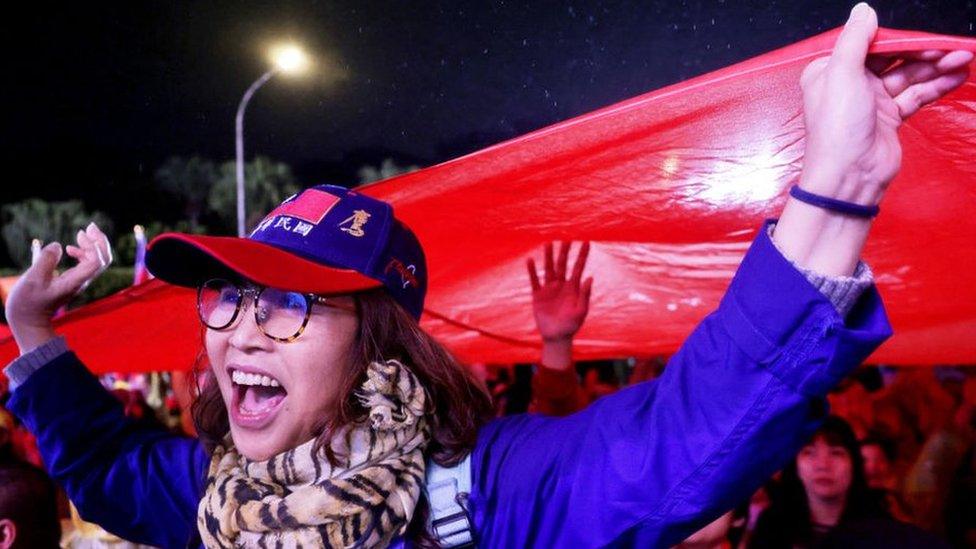Profile: Tsai Ing-wen, Taiwan's first female president
- Published
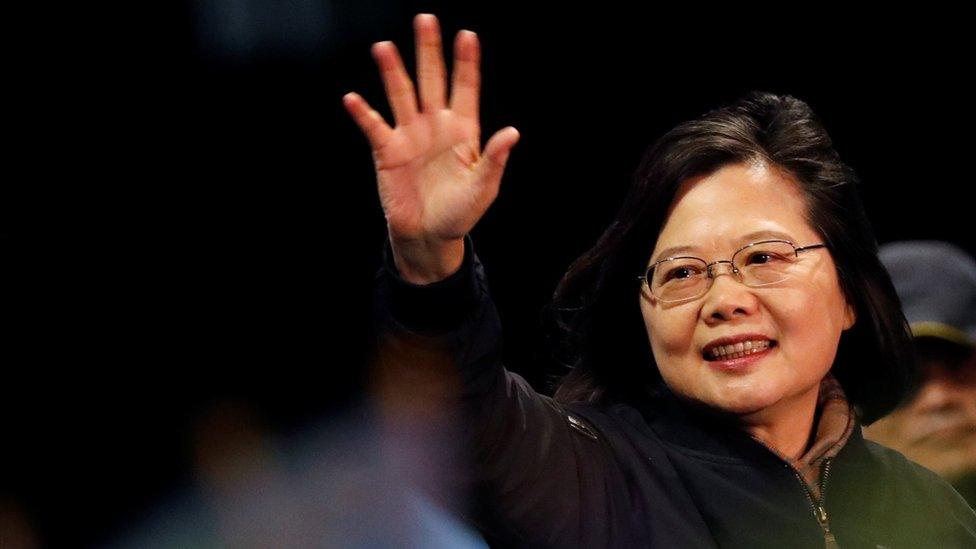
Tsai Ing-wen was first elected president in 2016
Tsai Ing-wen made history in 2016 as Taiwan's first female president - now, as she prepares to leave office, her defence of Taiwan's sovereignty may arguably define her legacy.
Her refusal to acknowledge "The 1992 consensus", the vaguely-worded agreement which says Taiwan is part of "One China", led Beijing to label her a separatist. She has also said China needs to show Taiwan respect and that Taipei will not bow to pressure.
The 67-year-old's strong stance has won her admirers and detractors in equal measure.
With three presidential candidates vying to replace Ms Tsai in Saturday's election, and Beijing keeping a watchful eye on proceedings, the question of how to deal with China remains a key issue at the ballot box.
Yet China has not been the only threat to her years in office, with other policy decisions leaving some wondering if she would be a one-term president.
Attempts to promote green energy ended with her being accused of nearly causing an electricity shortage, while the offer of two days off a week for all workers was rejected amid allegations of hurting, rather than increasing, workers' earnings and holidays.
Making Taiwan the first Asian society where gay marriage is legal - a move which earned her plaudits around the world - also damaged her popularity at home.
Whether she would even run for a second term was uncertain, with a former subordinate challenging for her party's nomination and - at one point - her approval rating hitting the 15% mark.
But it seems that her biggest headache - China - was the very thing that helped her decisively win another four years in office in the January 2020 elections.
'Stand with freedom'
Ms Tsai positioned herself as a defender of Taiwan's sovereignty against China's view that the island must one day be unified with the mainland.
Her main rival from the Kuomintang (KMT) party, Han Kuo-yu, pushed for closer relations with China.
But as anti-China protests swept Hong Kong in 2019, fears of what it could mean for Taiwan's future began to rise - as, it seems, did Ms Tsai's fortunes.
Her campaign pushed the notion that her Democratic Progressive Party (DPP) would stand up to Beijing and keep Taiwan a liberal democracy.
"Choosing Tsai Ing-wen... means we choose our future and choose to stand with democracy and stand with freedom," Ms Tsai told reporters the day before the country went to the polls.
In a landslide victory she took just over 57% of the ballot - more than eight million votes - with Mr Han trailing on 38%.
China and its influence is a key issue in Taiwan's election
Ms Tsai is the youngest of 11 children, born in a coastal village in the south of Taiwan. She moved to the capital Taipei when she was 11. Her mixed ethnicity - Hakka father and Taiwanese mother - has been cited as one of the traits that helped her connect to supporters.
She also has a grandmother who is from one of the non-Chinese indigenous groups in Taiwan.
A law graduate of the National Taiwan University, Ms Tsai completed her master's degree at Cornell University Law School in 1980 and went on to earn a doctorate from the London School of Economics and Political Science in 1984.
In the 1990s, she was a negotiator for Taiwan's accession to the World Trade Organization. She was then asked to serve on the National Security Council as an adviser to former President Lee Teng-hui.
Ms Tsai joined the DPP in 2004 and rose quickly to become its chairwoman four years later, when the party suffered a heavy defeat in the presidential elections.
Her predecessor, Chen Shui-bian, lost to Ma Ying-jeou at the polls in 2008, and was later jailed for corruption.
It was her style and bearing when she appeared on the political scene which set her apart from the rest of the DPP "old guard", something that has worked to her advantage in attracting younger voters.
Despite splits and factionalism in the party, Ms Tsai was able to rally the support she needed to rejuvenate the DPP. Under her leadership, it has performed much better in local elections.
Her first attempt at running for president failed in 2012, but she continued to build on her successes. Four years later, she was elected.
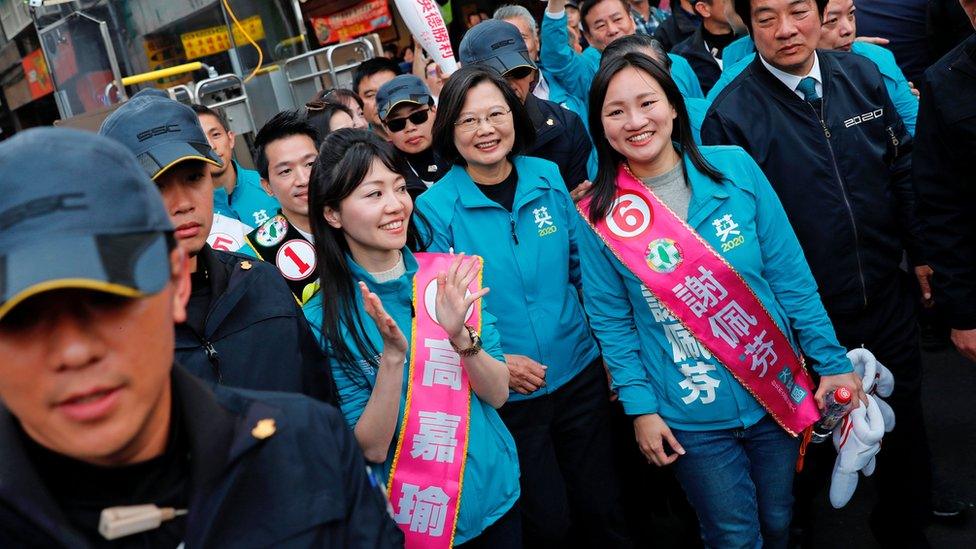
Ms Tsai had mixed successes in her first term
Her first term in office saw Taiwan's minimum wage, investments and stocks rise. Social services, including childcare and elderly care, and public housing also received a boost.
But her second term saw Ms Tsai face a range of challenges. In November 2022, she resigned as party chair after the DPP's poor showing in local elections centred on municipal issues.
This was followed by economic annual growth figures in 2023 projecting annual growth at just 1.42% - the lowest since 2009. The government's statistics bureau cited a larger-than-expected decrease in exports and investment.
Through it all, Beijing has loomed large, with Chinese President Xi Jinping repeatedly saying that Taiwan's "reunification" with China is inevitable.
It has been more than just words. In August 2022, Beijing staged huge military drills around Taiwan in a protest against then US House Speaker Nancy Pelosi's visit to the island. It has also repeatedly rehearsed encircling the island with fighter jets and navy ships, while Chinese military aircraft probe the edge of Taiwan's airspace on an almost daily basis.
As she leaves office, China remains one of the biggest issues on the ballot - but, as it has been throughout her tenure, not the only one.
Rising costs, unaffordable housing and shrinking opportunities have also driven dissatisfaction against the DPP - and sent young voters into the arms of the Taiwan People's Party and its populist candidate, Ko Wen-je.
Whoever becomes the next president of Taiwan will have his work cut out dealing with these various issues.
But there is no doubt that, for better or for worse, Ms Tsai's policies have changed the conversation around China - perhaps permanently.
- Published8 January 2024
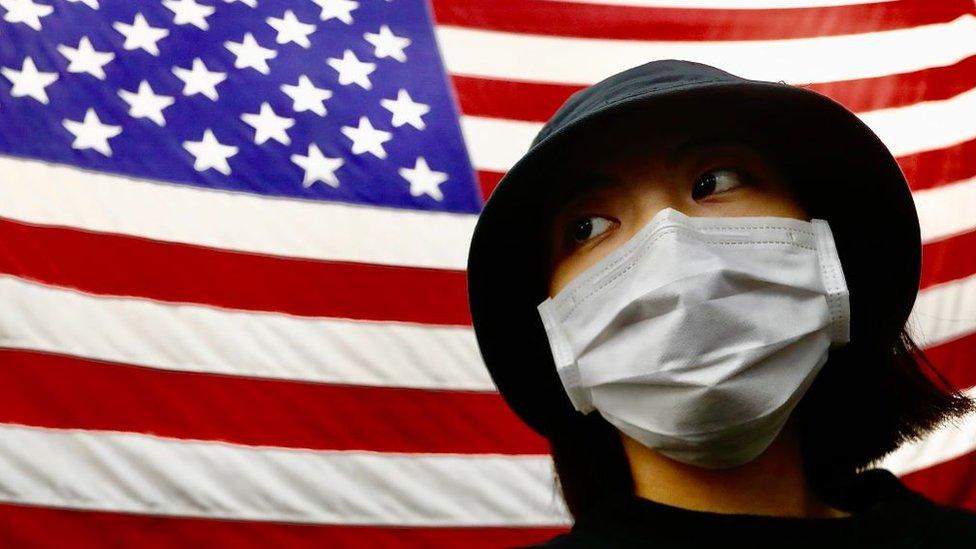
- Published5 January 2024
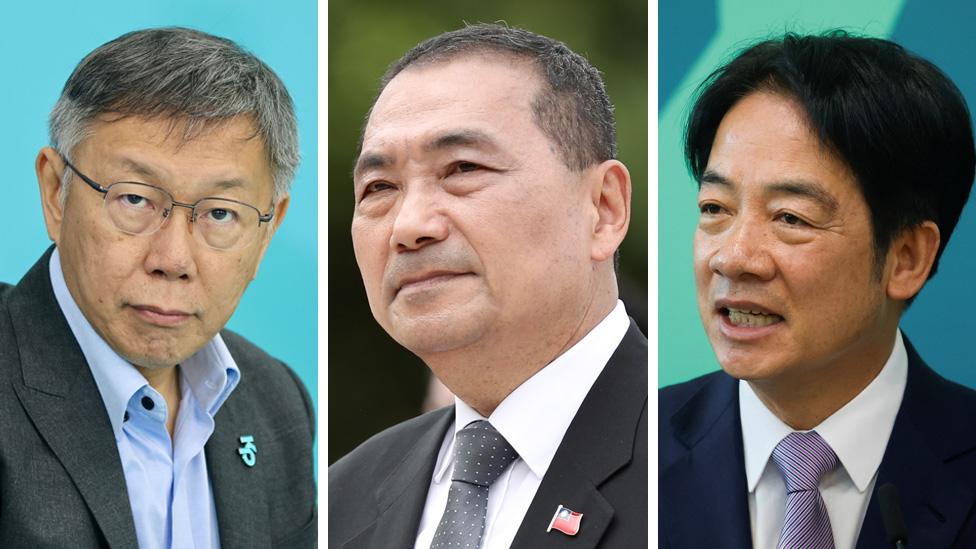
- Published27 December 2023
